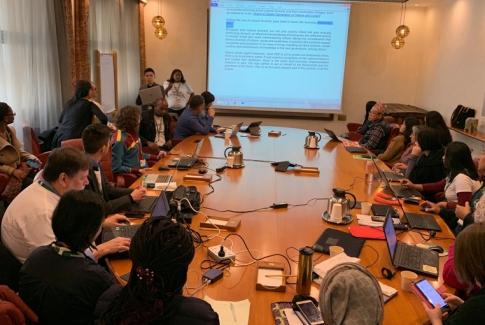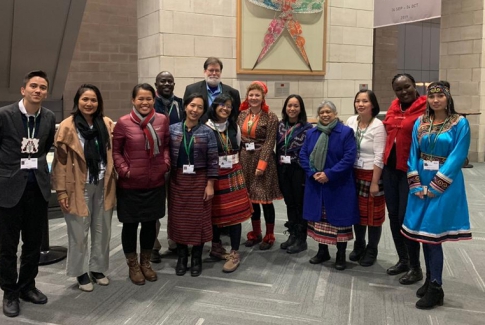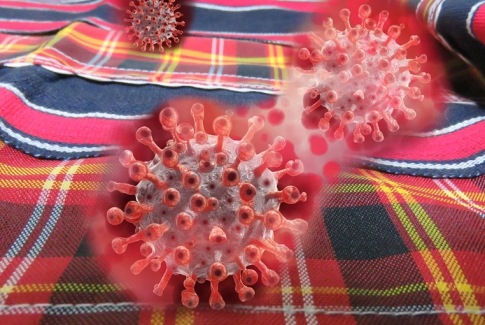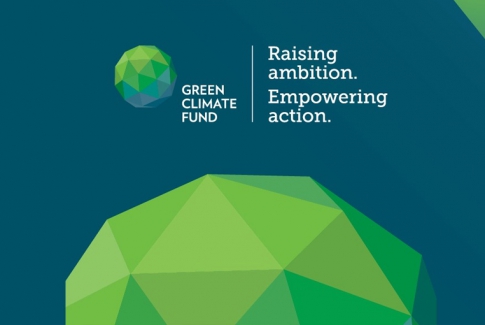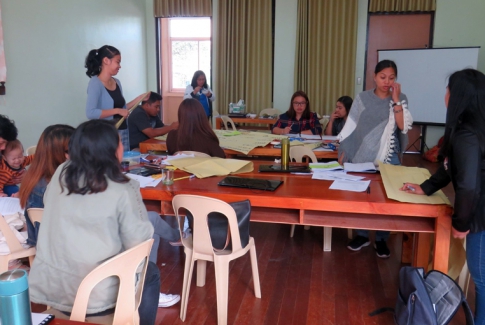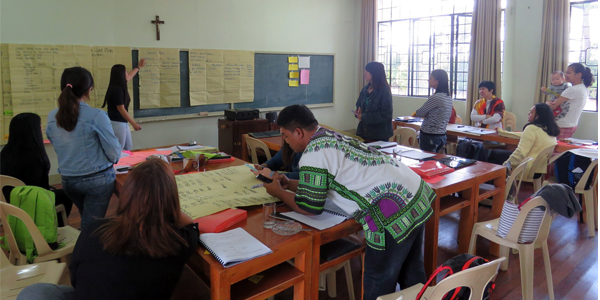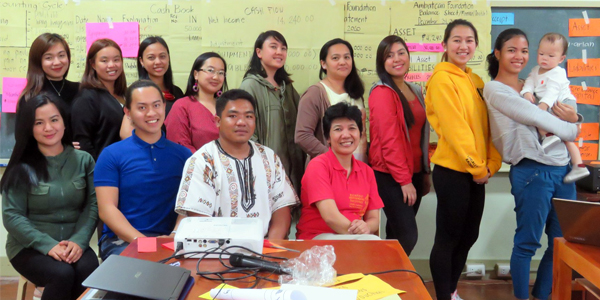BAGUIO CITY, Philippines – “As the original stewards and owners of the lands and waters on this planet, our message throughout our discussions this week is that cultural intelligence working with nature is the best way forward”. Ken Paul from the Assembly of First Nations was speaking on behalf of the International Indigenous Forum on Biological Diversity (#IIFB) during the Second Meeting of the Open-ended Working Group (OEWG) on the Post 2020 Global Biodiversity Framework, held in February this year in Rome, Italy. His message guides the indigenous participants in the different agenda being discussed under the Convention on Biological Diversity (#CBD).
As the implementation period for the current Strategic Plan for Biodiversity 2011-2020, including the 20 Aichi Biodiversity Targets, draws to a close, the CBD is undertaking a comprehensive and participatory process for the development of the post-2020 global biodiversity framework. The process adopted by the fourteenth meeting of the Conference of the Parties to the CBD fosters the engagement of all relevant stakeholders; thus, it is important that #indigenouspeoples are able to effectively participate in this process in order to ensure a framework that recognizes their rights and role in its implementation.
The process of the development of the post-2020 global biodiversity framework established an open-ended intersessional working group on the post-2020 global biodiversity framework that will meet three times prior to the fifteenth meeting of the Conference of the Parties (originally scheduled for October 2020, but now moved to 2021 due to the global pandemic).
The OEWG already met twice on August 27-30, 2019 and February 24-29, 2020, in Nairobi, Kenya and Rome, Italy, respectively. In these meetings, IIFB has generally been pushing for several lobby points, such as for the security of indigenous peoples lands, territories and resources be reflected as part of a target, that cultural diversity be reflected as directly linked with biodiversity, as well as that a rights-based approach be adopted and incorporated in the monitoring and implementation of the framework.
During the OEWG-1, the IIFB provided inputs on the potential elements of the structure and scope of the post-2020 global biodiversity framework. In the OEWG-2, the IIFB asserted how indigenous peoples rights should be reflected in the post-2020 global biodiversity framework and successfully lobbied with party delegations from Philippines, Australia, Mexico, Colombia and Norway. Because of these efforts, currently, several concepts that are supportive of indigenous peoples’ rights are included in the report of the meeting and is recommended to be considered in the preparation of the documents for the upcoming Subsidiary Body on Implementation (SBI) at its third meeting, Subsidiary Body on Scientific, Technical and Technological Advice (SBSTTA) at its twenty-fourth meeting, and OEWG-3 for the post 2020 global biodiversity framework. This enhances the chance of indigenous peoples to negotiate for better policies when the framework structure is finalized and adopted in COP 15.
Several examples are the widening of scope of benefit sharing to include biological resources and ecosystem services, recognition of indigenous food systems, recognition of customary sustainable use, integration of cultural values, utilizing ecosystem-based approaches, and protection of the right to free prior and informed consent, among others.
In the beginning of 2019 up to the present, a series of global, regional, thematic consultations, and online forums were organized by the CBD Secretariat as part of the process of developing a robust post-2020 global biodiversity framework. While
indigenous peoples were able to attend the consultations, some concerns had to be raised, such as the limited number of indigenous participants during the regional consultations and that the outcomes of the global thematic dialogue for indigenous peoples and local communities were not reflected in the zero draft of the post-2020 global biodiversity framework.
Intersessional meetings of the Ad-Hoc Open-ended Working Group on Article 8(j) and Related Provisions (WG8J) and the SBSTTA 23 were also convened in November 2019 in Montreal.
The WG8J 11 examined the potential role of traditional knowledge, customary sustainable use and the contribution of the collective actions of indigenous peoples and local communities to the post-2020 global biodiversity framework. IIFB was able to influence the recommendations adopted by the SBSTTA and WG8J including for an option for a permanent body to address indigenous peoples’ concerns in relation to biodiversity when negotiating for the form by which the WG8J will continue post-2020. This is to address how indigenous peoples’ concerns are currently being addressed in the CBD, where by an ad-hoc working group is meeting once a year to address issues only relating to traditional knowledge. The IIFB asserts that indigenous peoples are central to the achievement of the objectives of the Convention, and that their rights and issues are relevant to all aspects of the Convention.
Meanwhile, SBSTTA 23 reviewed possible elements for the post-2020 global biodiversity framework. The that IIFB contended that the evidence base shows that indigenous peoples territories show less decline in biodiversity, and as such, indigenous peoples right to land, territories and resources must be secured and reflected in the post-2020 global biodiversity framework. Throughout the meeting, IIFB and allies in the CSO had called for the full recognition of indigenous peoples lands, waters, territories and resources. This remains a contentious issue for many countries, because it is usually interpreted as challenging the sovereignty of a nation over all territories within its jurisdiction.
To date, most of the upcoming CBD meetings were postponed in light of the current coronavirus (COVID-19) pandemic while some were held through a combination of live virtual sessions and online discussions. Despite this setback, indigenous peoples look forward to participation fully and effectively in this process and its implementation for the years to come.
As aptly intervened by Aslak Holmberg on behalf of the IIFB during the opening of OEWG-2, “Nature needs urgent measures. We need to act now to protect our biodiversity. There is no more time to waste. The recognition of our rights to govern our own territories and practice our knowledge contributes to community and ecosystem resilience. As the guardians and defenders of Mother Earth, we urge all governments to act on behalf of biodiversity. See us as the most valuable part of the solution, and work together with us towards a new relationship with nature - one that heals and sustains for all of our future generations.”


